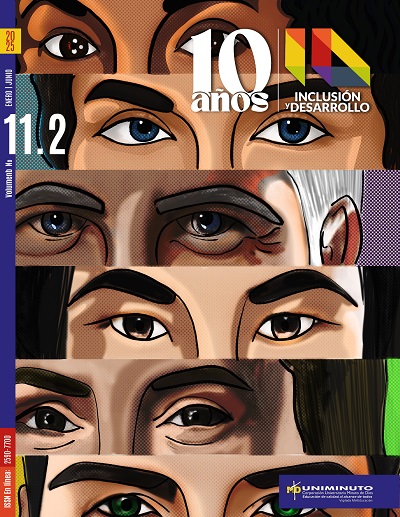Not everything is as we have learned epistemological obstructions of inclusive education
Main Article Content
Abstract
On this occasion I analyze some fundamental oppressions that affect the academic genre indexed as inclusive education. To this end, I maintain that what we know as inclusive education is not such a thing. We only know a pseudoheuristic disguise that imposes the founding paradigms of special education, its didactic and epistemological model to strategically fill in a blank space. What we name through the phrase ‘inclusive education’ is nothing more than a system of arbitrary transliteration of diverse bodies of knowledge, categorical forms and methodological repertoires typical of special education, co-opting defining signs - identity and face - of inclusive education. We are in the presence of a research territory that wanders with great force through various academic structures, ethical commitments and political projects – many of them, of dubious reputation – without knowing who it is. The work concludes by observing that taking special education as inclusive education is making the same mistake.
Article Details
Conference Proceedings Volume
Section

This work is licensed under a Creative Commons Attribution 4.0 International License.
How to Cite
References
Bal, M. (2009). Conceptos viajeros en las humanidades. Una guía de viaje. Murcia: Cendeac.
Best, S. & Kellner, D. (1991). Postmodern Theory. London: Guilford Publications.
Braidotti, R. (2002). Metamorfosis. Hacia una teoría materialista del devenir. Madrid: Akal.
Braidotti, R. (2006). Feminismo, diferencia sexual y subjetividad nómade. Barcelona: Gedisa.
Braidotti, R. (2009). Transposiciones. Barcelona: Gedisa.
Corona, J. (2018). La ontología del presente. Valenciana, [s.l.], v. 22, n. 11, p. 315-322, 2018. Recuperado el 02 de mayo de 2020 de: http://www.scielo.org.mx/pdf/valencia/v11n21/2007-2538-valencia-11-21-315.pdf.
Chambers, I. (2009). La cultura después del humanismo. Madrid: Ediciones Cátedra.
Cho, S., Crenshaw, K. & McCall, L. (2013). Toward a field of intersectionality studies: theory, applications, and praxis. Signs 38, 785–810.
Deleuze, G. & Guattari, F. (1968). Mil mesetas. México: FCE.
Esperón, J. P. (2016). Heidegger, Deleuze y la diferencia. Aportes para pensar la irrupción de la novedad. AISTHESIS, Nº 59, 143-156.
González, B. (2018). La ética diferencial de Rosi Braidotti. Agora. Papeles de filosofía, 37 (2), 173-191.
Lazzarato, M. (2006). Por una política menor. Acontecimiento y política en las sociedades de control. Madrid: Traficantes de Sueños.
Mouffe, Ch. (2007). En torno a lo político. Comunidad, ciudadanía, pluralismo y democracia radical. Buenos Aires: FCE.
Ocampo, A. (2017). Epistemología de la educación inclusiva. Granada: UGR.
Ocampo, A. (2018). La formación del profesorado y la comprensión epistemológica de la educación inclusiva: tensiones, permeabilidades y contingencias. Santiago: Fondo Editorial CELEI.
Ocampo, A. (2019). Contornos teóricos de la educación inclusiva. Boletín Redipe, [s.l.], v. 8, n. 3, p. 66-95.
Ocampo, A. (2020). Inclusión como método. Revista Atos de Pesquisa em Educação, V.15, n.1, 1-30.
Ocampo, A. (2024). “Problemas fundamentales de la educación inclusiva”; en: Vercellino, S., Ocampo, A. & Arciniegas, M.L. (Comps.). Estudios sobre Educación Inclusiva em Latinoamérica. (pp.16-83). Santiago: Fondo Editorial CELEI.
Oppermann, S. (2011). Ecocriticism’s theoretical discontents. Mosaic: A Journal for the Interdisciplinary Study of Literature, [s.l.], v. 44, n. 2, p. 153-169. Recuerado el 12 de agosto de 2020 de:
https://www.researchgate.net/publication/236830201_Ecocriticism’s_Theoretical_Discontents. Acesso em: 25 mar. 2020.
Perea, A. (2011). La ontología crítica del presente de Michel Foucault como heterotopología de la subjetividad moderna. Tesis (Doctoral) – Pontificia Universidad Javeriana, Bogotá.
Spivak, G. (2006). Crítica de la razón postcolonial. Hacia una historia del presente evanescente. Madrid: Akal.





